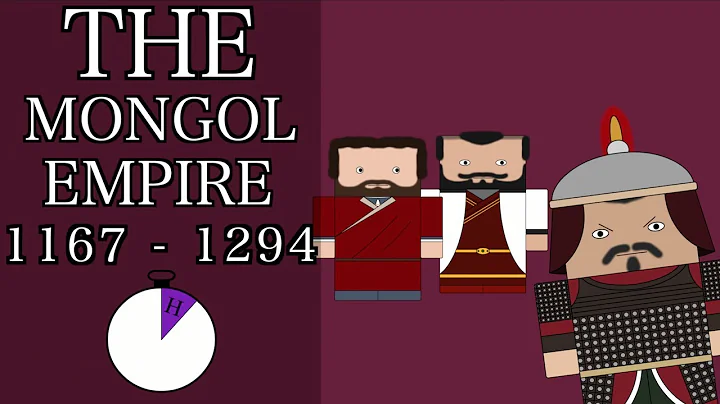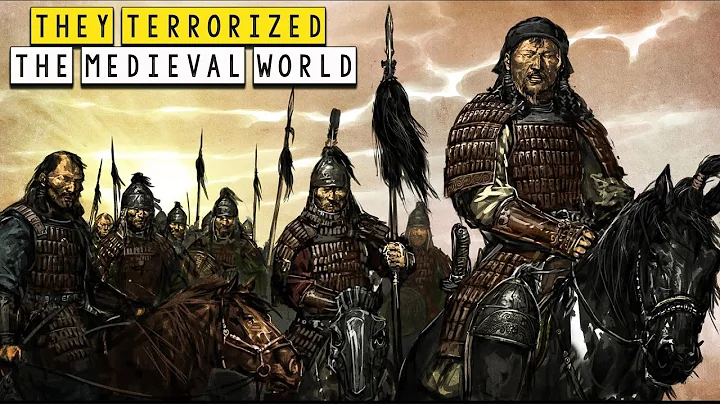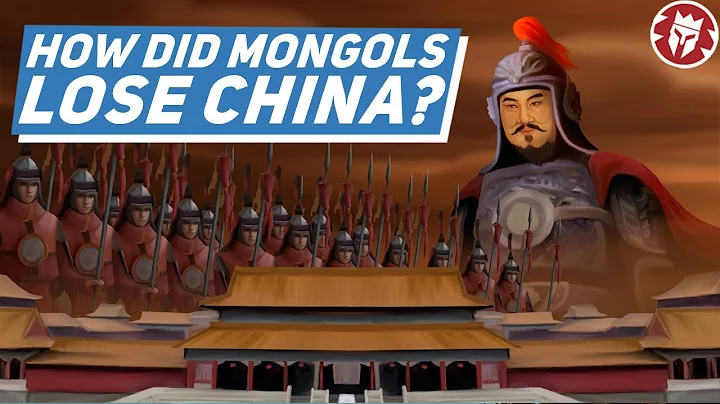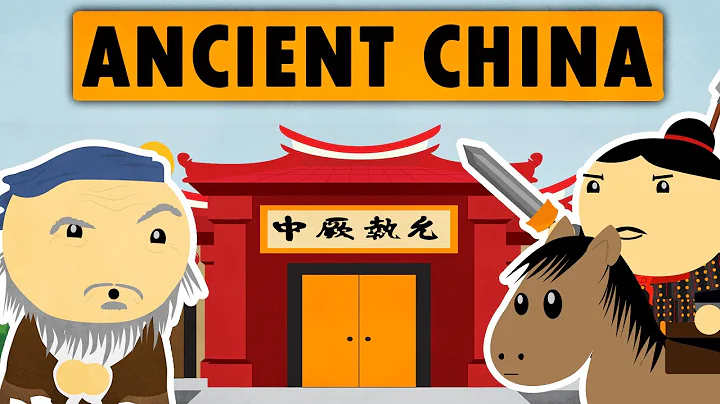The Yuan Dynasty (1271-1368) was the first unified dynasty established by ethnic minorities in Chinese history. The ruler was the Mongolian Borzhijin clan. According to the legend of five generations and eleven emperors, it took 162 years from 1206 when Genghis Khan established the Mongolian regime, and 98 years from Kublai Khan to name the country Yuan Dynasty. After the Yuan Dynasty withdrew from the Central Plains, the Northern Yuan regime lasted until 1402.
Genghis Khan, Boer only Jin (bó ér jì jǐn)· Temujin (1162-August 25, 1227), with the honorary title "Genghis Khan", was born in the Mongolian Qiyan tribe The upper reaches of the Onan River (now Onan River ) in Mobei (now Kent Province, Mongolia). Khan of the Great Mongol Kingdom (reigned from 1206 to August 25, 1227), an outstanding military strategist and statesman in world history.
Temujin lost his father in his early years, was expelled by the hostile tribe, and defected to the Kelie tribe. After gathering the tribesmen, he was elected as the Khan of the Mongolian Qiyan tribe in 1189. After a series of wars, in 1204, he basically unified all the tribes on the Mongolian Plateau. In 1206, the emperor (Khan) ascended the throne at the source of the Onan River and established the Great Mongolian Kingdom . After the founding of the People's Republic of China, a thousand-household system was implemented, a guard army was established, and the "Dazhasa" was promulgated. After many foreign wars, he occupied a large territory of the Jin Dynasty in East Asia, and destroyed Xixia, Western Liao and Khwarezm in Central Asia. His conquests reached as far as the Black Sea coast. In 1227, Temujin died of illness on the eve of Xixia's surrender at the age of sixty-six. Before his death, he decided on the strategy of "alliance with the Song Dynasty to destroy the Jin Dynasty", and was secretly buried in the Qi Nian Valley of after his death. After the establishment of the Yuan Dynasty, he was given the posthumous title of Emperor Fatian Qiyun Shengwu and the temple name Taizu.
In the fourth year of Jin Taihe (1204), Temujin, the leader of the Mongolian tribes, unified all the Mongolian tribes on the Mongolian plateau through war. In the sixth year of Jin Taihe (1206), Temujin was elected as "Genghis Khan" by various tribes and established political power in Mobei. The Mongol Empire was established and the country was named Great Mongolia. Since then, the long-term melee situation in Mongolian grassland has ended.
After the establishment of the Great Mongolia, it continued to launch foreign wars to expand its territory. In 1218, Mongolia destroyed Western Liao. In 1219, Genghis Khan launched a westward expedition to Central Asia's Khwarezm, attacking all the way to the Volga basin in Eastern Europe. He returned eastward in 1225. In 1227, Xixia was destroyed, and Genghis Khan also died during the expedition against Xixia. After the death of Genghis Khan, the third son Ogedai succeeded to the throne. In 1234, Mongolia united with the Southern Song Dynasty to completely wipe out the gold. In 1241, the Mongolian army on the Western Expedition once approached the hinterland of Eastern Europe. In 1246, he surrendered Tubo . In 1253, Kublai Khan went on an expedition to the southwest and destroyed Dali.
In its foreign wars, the Mongolian army slaughtered and enslaved a large number of people in areas who dared to resist after breaking the city. Many ethnic groups suffered cruel and unjust national oppression, and countless people and property were lost in the war and the subsequent plague, famine and natural disasters. It was also a rare dark period for the war-torn areas.
Temujin is a very controversial figure. Since its rise, it has been regarded as a barbaric and cruel invader. In modern times, there are also views that the foreign conquest wars launched by the Mongol Empire under the leadership of Temujin and his successors promoted the mutual influence between the Eurasian continent and had a profound impact on the subsequent course of world history. In addition, his unification war against the Mongolian tribes played an important role in the formation of the Mongolian national community. Temujin is still regarded as a national hero by the Mongolian people and has become the national symbol of Mongolia.
Kublai Khan, the founder of the Yuan Dynasty, Kublai Khan , Bo'er Jijin·Kublai Khan (September 23, 1215 - February 18, 1294), Mongolian, politician and military strategist. The fourth son of Jian Guo Torre , Yuan Xianzong Meng Gedi. The fifth Khan of the Great Mongol Kingdom and the founding emperor of the Yuan Dynasty. The Mongolian title is "Xue Chan Khan".
On July 1, the first year of Xianzong of Mongolia (the eleventh year of Chunyou in the Southern Song Dynasty, 1251), Kublai Khan’s eldest brother Meng Ge ascended the throne and became the emperor of the Great Mongolia, the Great Khan of the Mongolian Empire. He was the Xianzong of the Yuan Dynasty, because Kublai Khan Among Meng Ge's half-brothers, "the longest and most virtuous", Meng Ge soon appointed Kublai Khan to be responsible for the affairs of the Han Dynasty in Monan. During this period, Kublai Khan appointed a large number of Han staff and Confucian scholars, such as Liu Bingzhong, Xu Heng, Yao Shu, Hao Jing, Zhang Wenqian, Dou Mo, Zhao Bi etc., and put forward the idea of "practicing Han law". Confucian scholars Yuan Haowen and Zhang Dehui also asked Kublai Khan to accept the title of " Confucian Grand Master", and Kublai Khan accepted it happily. Kublai Khan respected Confucianism. He was "a great sage, a great scholar, good at Confucianism, fond of clothes, and respectful of etiquette." Lie got the Jingzhao fiefdom. Kublai Khan established the Jingzhao Xuanfu Department. Kublai Khan led his army from Shaanxi to attack the Dali Kingdom located in present-day Yunnan and other places; on January 2, the fourth year of Emperor Xianzong of Mongolia (the second year of Baoyou in the Southern Song Dynasty, the third year of Dali Tianding, 1254), Kublai Khan captured In Dali City, King Duan Xingzhi surrendered, and Kublai Khan destroyed the Dali Kingdom. The Yunnan region was incorporated into the territory of the Great Mongolia.
In the seventh month of the lunar calendar in the eighth year of Emperor Xianzong of Mongolia (the sixth year of Baoyou in the Southern Song Dynasty, 1258), Meng Ge led an army to invade northern Sichuan. He was invincible and conquered most of northern Sichuan. On November 29, according to Meng Ge's order, Kublai Khan held a flag ceremony in the northeast of Kaiping and officially sent troops south to attack the Song Dynasty. At the beginning of the ninth year of Xianzong of Mongolia (the first year of Kaiqing in the Southern Song Dynasty, 1259), Mengge Khan's offensive was blocked at the foot of Hezhou City. On August 2, Kublai Khan led his army to Runan, Henan, and continued to march towards the Southern Song Dynasty. He sent Yang Weizhong and Hao Jing to propagate Jianghuai. On September 3, the ninth year of Emperor Xianzong of Mongolia (the first year of Kaiqing in the Southern Song Dynasty, 1259), Kublai Khan led the Middle Route Army to cross the Huaihe River and invade the territory of the Southern Song Dynasty. Then he headed south and opened a new battlefield in Hubei. Attack Ezhou in the middle reaches of the Yangtze River.
On August 11, the ninth year of Xianzong of Mongolia (the first year of Kaiqing in the Southern Song Dynasty, 1259), Meng died of illness in Diaoyu Mountain, Hezhou, Sichuan. On September 19, Kublai Khan's half-brother Mo Ge in Sichuan sent an envoy to announce the news to Kublai Khan and asked him to return north to inherit the throne. Kublai Khan thought, "I was ordered to come south, how could I return without success?" So he attacked the Southern Song Dynasty and won many times. Later, Kublai Khan's wife Chabi sent an envoy to report secretly, and conspired with the Lin ministers to establish Kublai Khan. Bi Lie's younger brother Ali Buge , and Ali Buge has already sent Alan Dal'er to mobilize troops near Kaiping, Tuolichi to recruit militia near Yanjing, and the envoys urged Kublai Khan to return to the north as soon as possible.
1 On November 17, the Confucian scholar Hao Jing wrote in the "Bench Teacher's Meeting", stating the reasons why the troops must withdraw immediately, which strengthened Kublai Khan's determination to withdraw his troops and return to the north. Kublai Khan claimed that he would attack Lin'an, the capital of the Southern Song Dynasty. General Liu continued the siege of Ezhou and increased the military pressure on the Southern Song Dynasty. The Prime Minister of the Southern Song Dynasty, Jia Sidao, sent an envoy to ask for peace, agreed to cede territory to the Southern Song Dynasty, and sent year-old coins . Kublai Khan then On the same day, he withdrew his troops and returned north. Later, Jia Sidao lied about winning the battle and presented the victory reports to the Emperor of the Southern Song Dynasty one after another.
On May 5, the first year of Zhongtong (the first year of Jingding of the Southern Song Dynasty, 1260), Kublai Khan ascended the throne and became the emperor of the Great Mongol Kingdom, the Great Khan of the Mongol Empire. Kublai Khan issued the "Edict on the Ascension of the Emperor" to proclaim himself emperor. In the edict, he called himself "I" and called his brother Yuan Xianzong Meng Ge "the late emperor". On June 29, Kublai Khan issued the "Zhongtong Jianyuan Edict", officially establishing the reign name "Zhongtong". In 1271, Kublai Khan changed the name of the country to "Dayuan" based on the meaning of "Great Qianyuan" in the "Book of Changes", and made Dadu the capital the following year.
In the eleventh year of the Yuan (1274, the tenth year of Xianchun in the Southern Song Dynasty), Kublai Khan ordered Xindu, the Fengzhou economic envoy to garrison Goryeo, and Hong Chaqiu, the chief military and civilian manager of Goryeo, to lead 15,000 troops and large and small warships. 900 ships set sail for Japan. Under the determined resistance of the Japanese army, they only won a small victory in the first battle and failed to penetrate deeply. Soon, because a typhoon destroyed most of the warships and their troops were exhausted, the Yuan army had to withdraw hastily.
In February of the twelfth year of Zhiyuan (the first year of Deyou in the Southern Song Dynasty, 1275), Kublai Khan sent Du Shizhong, the Minister of Rites, and others as envoys to Japan. As soon as Du Shizhong arrived in Japan, he was executed by the Kamakura shogunate. This news did not reach the Yuan Dynasty until 1280. Therefore, Kublai Khan determined to conquer Japan again. In the second half of that year, the Yuan Dynasty mobilized troops (including assembling new auxiliary armies of the Southern Song Dynasty) and established the Zhengdong Province (also known as Japan Province ) to take charge of the conquest plan.
On February 4, the 13th year of the Yuan Dynasty (1276, the second year of Deyou in the Southern Song Dynasty), the Yuan army invaded Lin'an. Emperor Gong of the Song Dynasty presented the Imperial Jade Seal with a surrender order. The Southern Song Dynasty was destroyed and the Yuan Dynasty took control of the national power. On March 19, the 16th year of Zhiyuan (the second year of Xiangxing in the Southern Song Dynasty, 1279), the last remaining resistance force of the Southern Song Dynasty's maritime exile regime was eliminated, and the Southern Song Dynasty was completely destroyed.

After the Yuan Dynasty destroyed the Song Dynasty, Kublai Khan launched a series of wars against neighboring countries, such as Annan, Champa , Java and Japan. In 1274, the Yuan army invaded Japan and encountered hurricane . Japan called it the "Battle of Wenyong", but the Yuan army returned without success. In 1281, the Yuan Dynasty attacked Japan in two directions. Xindu led the Mongolian army, the Han army, and the Goryeo army to cross the Tsushima Strait from Goryeo. Fan Wenhu led the new attached army from Qingyuan (Ningbo, Zhejiang) Fuhai advanced northward, known as the "Battle of Hong'an" in history. The Yuan army encountered a hurricane on Eagle Island in Japan. Many warships were damaged, and many soldiers drowned. They were also killed by the Japanese army, and almost the entire army was wiped out. But the two Yuan-Japanese wars shook the rule of the Kamakura shogunate in Japan.






















